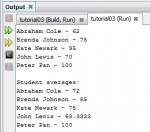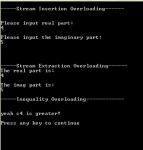Factorize Number with Vector and Pair
We'll see how you can factorize a natural number, using vector and pair from the C++ STL!
First, you need the following declarations:
- #include <iostream>
- Read more about Factorize Number with Vector and Pair
- Log in or register to post comments
- 45 views









